Best Linux laptops in comparison
Your perfect Linux laptop: Lenovo or HP – together we'll find it! Imagine opening the box of your new laptop, excited to install Linux on it. Pe...

Here's what you should consider before buying a new or used computer or laptop in 2022. Computers are an essential part of our daily lives. Especially in office environments, but also at home, fast PCs are needed for work or for using multimedia services like YouTube. When buying a computer, you need to make sure you buy the right one. Unfortunately, computers are technical devices and therefore no longer meet the latest technology after a few years. While the PC you bought five years ago was the best in its class, fast and quiet, it may no longer be able to meet the demands of many software programs today. If you need a new computer but don't know what to look for when choosing, you've come to the right place. We'll explain what you should consider when buying a computer in 2022.
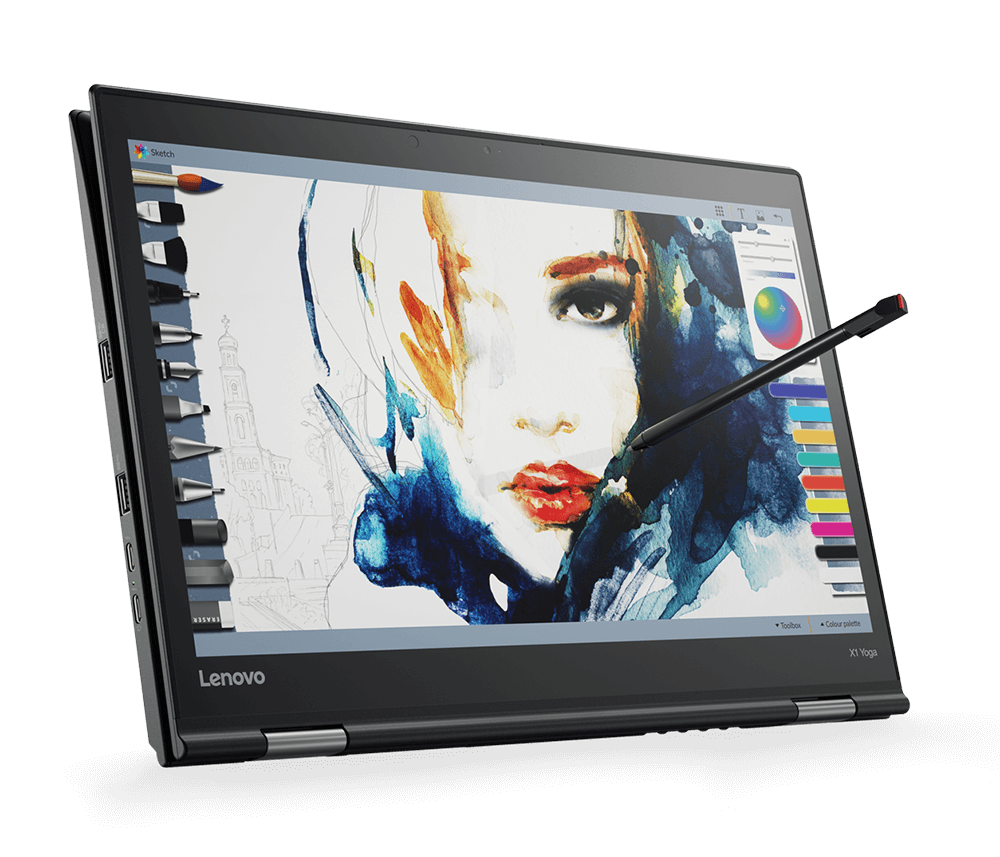 PC or laptop: Which makes more sense?
PC or laptop: Which makes more sense?You may still be wondering whether a used desktop PC or a good used laptop is better for you and your needs. First, consider the following questions: Do you always work at the same desk, or do you sometimes work at the office, sometimes at home, sometimes at a café? Do you work with very performance-intensive programs, such as CAD programs, or are you a gamer? Do you need very powerful graphics cards? Or are lightweight programs like MS Office sufficient for you?
Cheaper than laptops: Prices for good PCs range from €300-400
Can be expanded at any time, as it is usually no problem to upgrade graphics cards or hard drives
Desktop PCs have more power, better price/performance and are ideal for large programs and games
Monitor, mouse and keyboard are freely selectable and do not necessarily have to be purchased when changing computers and can run for up to 12 hours on battery power
Notebooks are more difficult to clean and upgrade
They usually have to be sent back to the manufacturer for repair, which can sometimes take several weeks
Powerful laptops are more expensive than standalone PCs: Good standard laptops suitable for word processing and web browsing start at €400. If you really need the laptop for work or watching movies, you shouldn't spend less than €700. As an alternative to the classic tower, there are also mini PCs, which are only the size of a small box.
They can be easily placed on the desk next to or behind the monitor. This, of course, looks much better than traditional PCs and saves space (but be careful, the connection cables must be routed carefully!). There are no compromises in performance with mini PCs either. The only drawbacks are that they cannot be individually expanded and that additional units must be connected externally.
 2. the processor: the heart of a computer
2. the processor: the heart of a computerChoosing the right processor determines the overall performance of your PC and is therefore an important factor when purchasing a computer. What is a processor? The processor is also known as a CPU (central processing unit). The CPU serves as the central processing unit for processing tasks. It is found not only in computers but also in many electronic devices such as washing machines, dryers, and other household appliances (Internet of Things, IoT 4.0). The two best-known CPU manufacturers are Intel and AMD.
Processors perform computer operations and control parts of the computer. Since the processor only understands binary code, meaning only zeros and ones, each number or digit must be converted into binary code, which is then processed by the processor. The clock speed, or clock frequency, of a processor determines the computer's performance. The higher the clock frequency, the faster the processor processes instructions.
The speed of the rhythms is measured in Hertz. One Hertz is one cycle per second. Computers typically make noise when they're running. This is often caused by the fan, which is designed to cool the processor. At high clock speeds, significant heat loss occurs, which must be compensated for by a fan. Otherwise, the processor can be damaged.
You need to consider how much performance you need and what you plan to use the computer for. Is it a pure business PC with simple word processing programs? Do you want to use powerful software like CAD programs, graphics programs, or a document management system? Or should it be a gaming PC? The higher the requirements, the more powerful the processors you should choose.
To increase processor performance , multiple processors are connected together without increasing the clock speed. This is called multi-core processors. A distinction is made between processors with one core (single core), processors with two cores (dual core), processors with four cores (quad core), processors with six cores (hexa core), and processors with eight cores (octa core) or higher fusion. In general, the more processors connected, the better the performance (there are limits here, as the processors themselves must be controlled!). Therefore, your new PC should have at least dual core.
Multi-core processors are better. Intel produces good processors in various classes and differentiates between Core i3, Core i5, Core i7, and Core i9. It's also important to distinguish between processor generations within the i-series: e.g., i7 - 7th generation or 8th generation. There are significant differences in performance and power consumption, and you should generally opt for a processor from the latest generation. There are significant price differences between computers with the respective processors.
Generally, i5 processors are suitable for good business PCs and laptops. I7 processors are only needed for intensive use and gaming. Laptops with i3 processors will hardly be on the market in 2020. The trend is therefore naturally toward increasingly powerful processors, which should be considered when purchasing a computer. Tip: In most cases, we recommend i5 or i7 processors, like our top laptop from Lenovo.
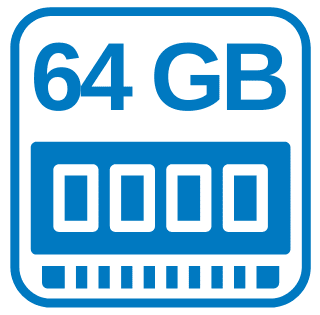 3. RAM for more performance
3. RAM for more performanceThe choice of RAM is also an important factor in determining PC speed. If possible, you shouldn't skimp on main memory, because if it runs low and data has to be temporarily stored on other storage devices, work processes will slow down significantly. With sufficient RAM, you can work more smoothly and reduce the load on the system.
RAM is a computer's storage, which contains the programs or parts of programs currently running and the data required to run them. The processor accesses main memory (or RAM) directly, so its size and performance are crucial to the overall performance of the PC.
Also called "RAM" (random access memory), all running processes and programs are cached in main memory. A RAM module typically has 1, 2, 4, 8, or 16 gigabytes of memory. For very low requirements, 4 GB of RAM is sufficient. However, we recommend at least 8 GB of RAM for PCs and laptops. RAM is relatively inexpensive and can be easily upgraded on standard PCs. Our advice: Don't skimp on working memory, or you'll be frustrated by slow processes.
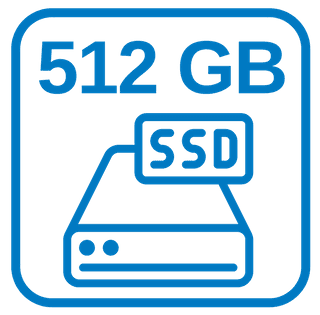 4. Which hard drive is right for you? Hard drive or SSD?
4. Which hard drive is right for you? Hard drive or SSD?While the processor is often referred to as the heart or brain of the computer, the hard drive is the storage. Data is stored on hard drives. A distinction is made between SSDs (solid state drives) and HDDs (hard disk drives). Traditional HDDs consist of one or more magnetic platters, each with a read head. As the magnetic platters rotate during operation, the read head moves across the platters and reads the stored data. SSDs, on the other hand, consist of many flash memories, which are also built into USB sticks. SSDs have been used more and more frequently in recent years because they offer enormous advantages over hard drives. Because SSDs have no mechanical parts, they are significantly more robust than hard drives.
While failures and data loss are inevitable with HDDs, SSDs are much less susceptible . The most important argument for an SSD, however, is that it operates significantly faster than a conventional hard drive—up to twice as fast. Furthermore, SSDs are lighter, more efficient, and therefore consume less battery. Hard drives are (still) cheaper than SSDs and offer (even) more storage space. However, we recommend a high-performance SSD with an eye toward the future. A 256 GB SSD is sufficient for basic word processing, while a 512 GB SSD is recommended for higher storage needs.
If you choose a classic hard drive, you should choose at least 1 TB of storage space or opt for the hybrid solution, an SSHD.
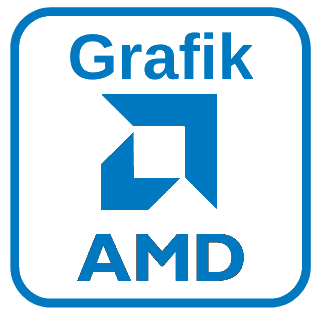 5. Graphics card
5. Graphics cardGraphics cards are responsible for generating graphics output, i.e., rendering individual images (also called "frames"). A graphics processor, or GPU for short, is integrated into the graphics card. The performance of the GPU also determines the price of the graphics card. The graphics processor (GPU) is responsible for providing images that were previously sent to it by the CPU. The intended use is also crucial when choosing the right graphics card.
Similar to CPUs, graphics cards range in price from a wide range. If you're not a gamer or use other graphics-intensive programs, the integrated graphics cards in most desktop and laptop PCs are sufficient. These tend to be slightly older models, but they are capable of handling most common personal and business applications. If you use graphics-intensive programs like CAD programs, image editing, or gaming, you should invest in a high-quality graphics card.
As a rule, the CPU and GPU should match. Computers with a powerful processor therefore also need a graphics card with a powerful graphics processor, and vice versa. Otherwise, the performance offered by a powerful CPU cannot be fully utilized. High-end graphics cards for gamers are manufactured by companies such as ASUS and AMD. They are characterized by particularly high performance and are generally relatively expensive.
Make sure your PC has USB 3.0/3.1 and HDMI/DVI ports. This allows you to connect most devices and monitors to the computer. Multiple USB ports are ideal for connecting most common devices, such as a mouse, keyboard, printer, and USB flash drives, in parallel.
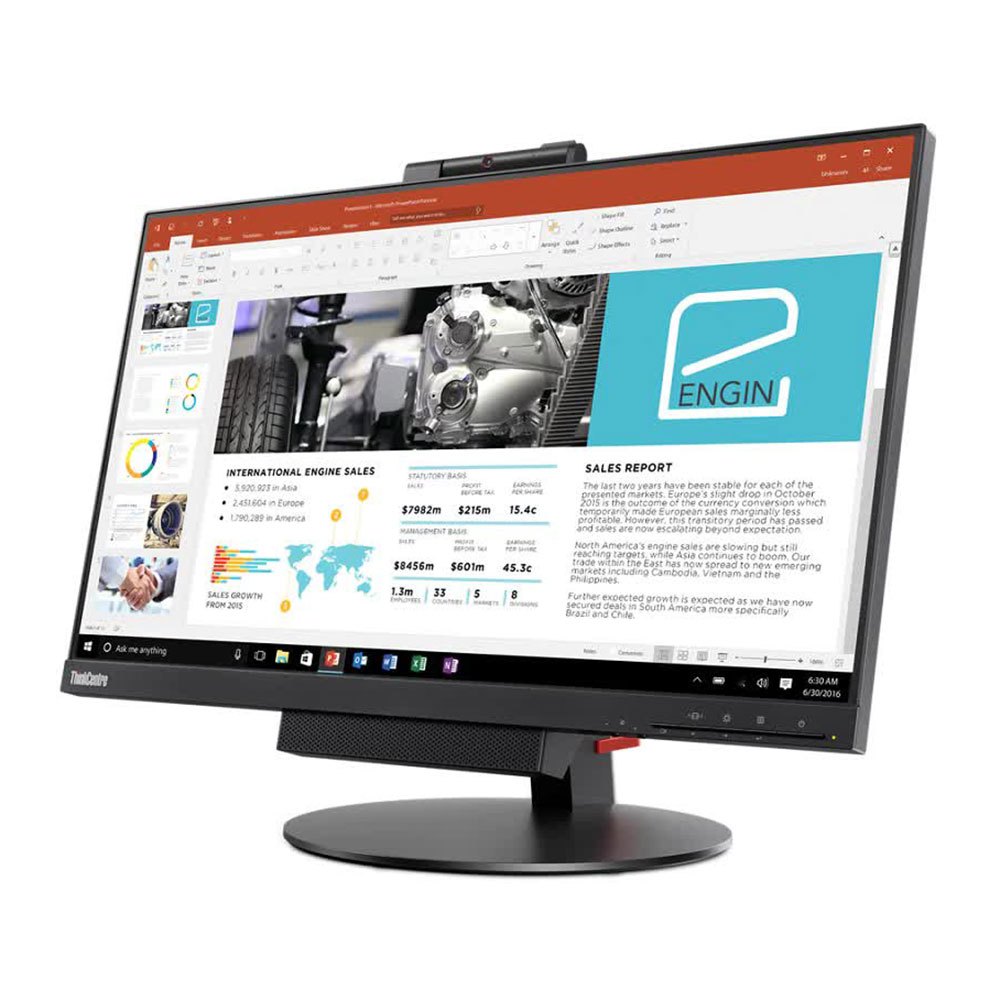 7. The right monitor
7. The right monitorIf you need a new monitor, you need to make sure your PC has the right interface. Monitors are usually connected to the computer via DVI or HDMI. Size is important when choosing the right monitor. Screens used in office environments typically range in size from 22" to 27". Monitors also vary in many factors. You should make sure the monitor is anti-glare, as non-anti-glare monitors can irritate the eyes when working for extended periods. Other important features are brightness and response time. The response time should not exceed 5 milliseconds to avoid making work more difficult. Brighter screens are better in bright environments. There are height-adjustable monitors and those with adjustable tilt. Height adjustment is always recommended for ergonomic work. Monitors that filter blue light are also now available. Blue light is harmful to health in the long term, so this is another useful feature.
Many PCs come with the operating system already installed. It's usually Microsoft Windows 10 or 8, or Apple OS. Some PCs don't have an operating system pre-installed. This is something to look out for if you need one and don't want to incur additional costs.
With a desktop PC, you definitely need a mouse and keyboard. Wireless keyboards and mice are convenient because they only use one USB port and there's no cable in the way. Theoretically, you don't need a laptop mouse if the included touchpad is sufficient.
 10. Quality pays off when buying a computer
10. Quality pays off when buying a computerPay attention to quality! When it comes to computers, the saying goes: Buy cheap, buy twice. Why an incorrectly configured PC is immediately noticeable. Very cheap PCs often offer good performance, but the components used are usually of inferior quality and develop defects after a short time. If you then have to take the computer in for repair, it will be expensive. It is therefore advisable to use high-quality manufacturers that use components from other reputable manufacturers.
Additionally, your PC should come with a two-year warranty (laptops typically only have a one-year warranty). Choosing a German manufacturer will definitely put you on the safe side. Now you know what to look for when buying a computer. As a system vendor, we're happy to advise you on which PC meets your needs. Need advice on buying a computer? Visit our configurator .